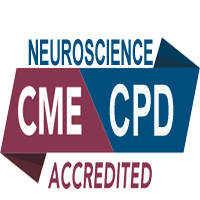Kwan Ching Yin Connie
The Chinese University of Hong Kong, Hong Kong
Title: Decision on mode of feeding in advanced dementia: Experience of caregivers in the discussion with medical profession
Biography
Biography: Kwan Ching Yin Connie
Abstract
Dysphagia and behavioural feeding problem has long been a prevalent issue in advanced stage of dementia (Easterling & Robbins, 2008). Instead of prescribing tube-feeding to tackle the impairment (Carmel, 1999), comfort feeding (or namely careful hand feeding) is an alternative to the dementia patient and caregivers in view of its comparable mortality rate to tube feeding (Sanders et al., 2000) and the patient’s quality of life (Sampson, Candy, & Jones, 2009). Therefore, it has always been a struggle for medical profession, as predictably as the patient’s caregiver, to choose between an adequate and safe nutritive support and quality end-of-life care on feeding. In this study, caregivers of advanced dementia patients of four different feeding and swallowing scenario were interviewed about their choice of feeding. The four scenarios include family choosing: (1) comfort feeding for patient diagnosed with severe dysphagia despite aspiration risk; (2) tube-feeding for patients with severe dysphagia; (3) comfort feeding for patient with feeding problem despite malnutrition; and (4) tube-feeding due to poor oral intake of the patient.
Narrative analysis (Labov & Waletzky, 1997) was used for analyzing the four interviews about caregiver's experience during discussion with medical profession on mode of feeding. The study then compares and contrasts the four narratives. Implications for stakeholers in relating and working with families and patients are explored, suggesting a framework for a family-centered decision making model on mode of feeding issue for families with patients of advanced dementia. Also, by self-reflexivity of the author (Burck, 2005), the importance of listening and acknowledging each family are important to identify family’s strength and resilience.

